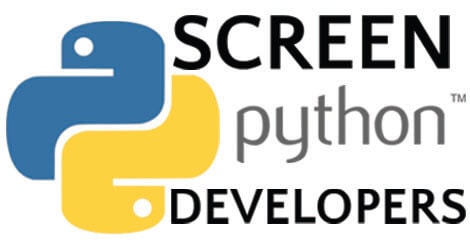
Comment évaluer les compétences des développeurs Python

If you are looking for a person with Python developer skills, know that finding them is only half the journey. So even if you can source them, it might take some extra effort to truly understand what Python skills really are. The real Python skill set is a complex thing to understand, but here we introduce an expert in the field, Wojtek Erbetowski to bring the topic to light.
1. What is Python?
Python is one of the most popular programming languages (ranking second according to the TIOBE Index as of September 2021). It was first released in 1991 and gained its popularity for being simple to learn, yet powerful in solving problems. The syntax is similar to the C++ family, yet is equipped in a variety of modern solutions.
The key advantages of Python are:
- Flat learning curve. It brings in users with little technical experience, like academics for research, or business for automation.
- It’s owned by an independent Python Software Foundation (PSF) and guided by the community.
- Powerful scientific tools (e.g. SciPy).
- Good documentation and community support. This includes many local user groups and conferences.
2. What is important for an IT Recruiter to know about Python?
Since Python has a variety of uses. It is often difficult to distinguish candidates from academics, through network programming and web applications to simple scripting. Yet it is often easier for a developer to learn new Python than to change her domain (e.g. Data Science to Web Applications).
In 2007, Python 3.0 was released. It was rejected by the community due to backward incompatibility. That said, in 2020, 94% of Python users switched to Python 3.
Python is dynamically typed, which ease scripting and writing small applications. It is often said to bring difficulties in building large and long-lasting applications.
3. How to verify Python developer skills at the screening phase?
Screening is tiring, arduous, and time-consuming. Usually IT recruiters turn to resume screening, technical screening (coding tests), and interviews to assess Python skills.
Below you find some useful and practical recruiting tips how to verify Python skills using each method.
3.1. Technical screening of Python developer skills based on CV
Fortunately (for recruiting), Python has fewer libraries and technologies to screen for, than e.g. Java. Yet a number of things might be confusing.
| Python language | Popular version 3.7, 3.8, 3.9, 3.10 |
| Python web frameworks | Django, Flask, Bottle, Tornado, web2py, FastAPI |
| ORM | SQLAlchemy, Django ORM, peewee |
| Build tools | Setup-tools, pip, tox |
| Test frameworks | UnitTest, py.test |
| Asyncio | Python 3.5, Tornado, Twisted |
| Data analysis tools | NumPy, SciPy, Pandas, PySpark |
Highlights:
- Python 2 and 3 are very different. Python 2.7 is the latest (and last) version of Python 2. Python 3 version is evolving and the latest version is 3.10
- Asyncio is only met in Python 3.
- Tornado, Twisted, Gevent are all libraries for async programming.
- Django is by far the most popular web framework.
- Unit test library is built into the language, therefore rarely mentioned separately.
Certification
Python Community does not provide any Certification program. Therefore it is rare to meet any (independent) certificates for Python language or libraries.
Full-stack developers
Fullstack often means that a Python developer may also create HTML pages with CSS and JavaScript. Frontend skills are welcome and most of JavaScript screening knowledge applies here.
3.2. Technical screening of Python technical skills during a phone/video interview
As it is pretty difficult to draw reliable conclusions about candidate’s programming skills from resume itself, IT recruiters often conduct a phone or video interview. Such an interview gives an opportunity to ask questions concerning their Python skills. In many companies such a technical phone or video interview is a basis for making a decision whether to invite somebody for on-site, technical interview with IT team or not, so it’s worth to choose and ask the right technical questions.
As questions themselves can vary based on the position you are recruiting for and specific skills you want to verify, based on my experience I would recommend following general questions to find out more about candidate’s Python skills:
A. Python interview question concerning developer’s experience
- Q1: With which technologies listed in your CV, did you have commercial experience in the past 2 years? What were your responsibilities? What was your biggest achievement?
- Why ask Q1: By asking this question, you can find out more about candidate’s Python up-to-date experience, responsibilities, and achievements. Thus you get to know your candidate better.
B. Python interview question concerning developer’s knowledge and opinions
- Q2 : Which Python open source libraries do you consider to be valuable and why?
- Why ask Q2: This question lets the candidate demonstrate their knowledge of Python ecosystem. Moreover, the candidate can point out what he takes into account when choosing a certain technology. As follow-up questions, you can also ask what in his opinion advantages of commercial solutions over open source and vice versa are. This shows how the candidate thinks.
- Q3 : I’ve noticed you listed framework X on your CV. What’s your opinion about it? Is it a good choice?
- Why ask Q3: Such an open question allows a candidate to demonstrate their knowledge if they have it. You can also play devil’s advocate based on their answers “But why not use framework Y for that?”. Thus you can see how the candidates choose a technology, justify their choices and whether his opinions are in line with your IT teams.
C. Python interview question concerning developer’s decision making regarding Python technology
- Q4 : On what stage did you join recent projects? Were you involved in the choice of technology or project setup? If yes, which technology did you choose or recommend for the project and why?
- Why ask Q4: Such a questions shows not only how a candidate makes choices regarding technology but also whether they were included in making decisions. Especially important if you are looking for someone with experience.
D. Behavioral question for python developer
- Q5 : Think about programming project decision you made that was a failure. Why do you think it was a mistake? Why did it happen? Could there be anything done differently in order to turn it into success? What steps did you take to improve the situation? What did you learn from this experience?
- Why ask Q5: That type of question will help you find out how the candidate perceives their decisions, draws conclusions and how much they learn from their previous experience.
3.3. Technical screening of Python skills with online coding test
Online coding tests can be a great way to screen Python skills. Below you will find information how you can use programming tests and which ones to choose.
Online Python coding tests – the primary or additional method for screening
Some companies use programming test as an addition to screening candidates after the resume is analysed and phone or video interview is conducted. But more and more companies turn to coding tests as the first method of screening programmers. Companies nowadays tend to invite all candidates that apply for a certain position to take a test. This way, recruiters only spend their time on candidates that passed the exam, proving that they have Python programming skills. On the other hand, candidates aren’t asked to dedicate too much of their time to the recruitment process early on – instead, they quickly complete the test (usually within an hour) at their own convenience both in terms of time and place.
Screen Python Developer skills with a built-in PyCharm IDE
At DevSkiller, we continue to push the boundaries when it comes to developer testing.
Our latest innovation is to let candidates solve our Python coding tests using an in-browser PyCharm IDE de JetBrains. No downloads, no waiting and no fuss.
Candidates save time during testing by not having to wait for dependencies to install or for programs to load. They can get straight to work focusing on their solutions to our Python coding tests instead of learning how to make a primitive IDE they’re unfamiliar with, work in their favor.
Candidates no longer have to clone the code – they can literally start coding as soon as they open their test invite. Candidates can run unit tests, preview and play their solutions, just like in their regular work.
For your company, this means offering a better candidate experience than ever before. It also means lower candidate drop-off during the process. The faster the process, the more likely it is for your candidates to see it through. It means you won’t let the best candidates slip through your fingers.
Python online coding test – which one to choose?
There are a lot of Python online coding tests on the market, but usually, they verify a candidate’s knowledge rather than programming skills and abilities to solve real-life coding problems. That’s why a lot of experienced programmers don’t like that kind of assessment and, what’s more, they aren’t able to get a good score as they cannot show their experience and skills in solving real-life programming problems.
So what features should a good coding test have? Below you will find my top 5 features you should be looking for:
- Python programming tests should verify not only Python skills as far as technology in general, but also frameworks and libraries;
- Python coding tests should consist of a couple of tasks, not only multiple-choice tests, but above all, programming tasks which difficulty should match the responsibilities the candidates will have if they get the job (tests shouldn’t be based on algorithmic tasks as thus you cannot verify whether a candidate can solve real-life coding challenges);
- Preferably, Python programming tasks should be prepared on the company’s own code base, as this is the best way to imitate the challenges the candidate will have once they get the job;
- There is no point in forbidding the programmer to use external sources. The best way is to create an environment similar to the one they would have at work, so an open book exam is much more appropriate. Moreover, the candidate should be able to use their preferred IDE, just as he does on a daily basis.
- Coding tests can also include a task with code review challenges to test Python skills. This gives very accurate information about the experience of the candidate, their approach to code quality and efficiency of debugging and finding traps. Such an assessment should be obligatory when recruiting Python senior developers.
Editor’s note: This post was originally published February 28, 2016. It has been extensively updated to represent the latest technical information and best practices.
Author – Wojtek Erbetowski

Wojtek is a hands-on leader with ~10 years of APIs / web apps experience in Python and Java. Worked as Head of Engineering @ Polidea, CTO @ GrowBots and actively participates as a Community Leader @ Warsaw Java User Group and Mobile Warsaw and Organizer of the MCE Conference. Open source library contributor, software developer, agile advocate. He was working in several business areas, e.g. sales, old-fashioned and new media advertising, e-mail marketing, pharmaceutical corp, EU financed portals, wholesale bookstore and more) and turning business needs into specialized apps.
DevSkiller ready to use online Python coding assessment tests
DevSkiller helps companies in IT recruitment process by providing them with an infrastructure which lets them test programming skills of candidates in the environment which imitates 1st day at work experience. We allow companies to use their own code base, whole IT projects using frameworks and libraries, to test programmers online. However, we also have some ready-to-use Python coding tests which you can use in your technical recruitment campaign.
- Compétences testées
- La durée
- 97 minutes max.
- L'évaluation
- Automatique
- Aperçu du test
-
Questions à choix
l'évaluation des connaissances Python 3.x
Lacunes du code
l'évaluation des connaissances Python 3.x
Tâche de programmation - Niveau : Moyen
Python | FastAPI | Modèle de prédiction - Étendre l'application FastAPI actuelle pour permettre aux scientifiques des données d'envoyer leurs modèles via l'API, de les stocker dans une base de données, de les visualiser et d'en tirer des prédictions, sur la base d'une valeur d'entrée.
- Compétences testées
- La durée
- 76 minutes max.
- L'évaluation
- Automatique
- Aperçu du test
-
Questions à choix
l'évaluation des connaissances Python
Lacunes du code
l'évaluation des connaissances Python
Tâche de programmation - Niveau : Moyen
Python | Bibliothèque de change
- Compétences testées
- La durée
- 82 minutes max.
- L'évaluation
- Automatique
- Aperçu du test
-
Questions à choix
l'évaluation des connaissances Big Data, PySpark, Python
Lacunes du code
l'évaluation des connaissances SQL
Tâche de programmation - Niveau : Difficile
Python | PySpark | Société de gestion de flotte - Détecter les excès de vitesse et vérifier l'exactitude d'un prédicteur existant.
- Compétences testées
- La durée
- 104 minutes max.
- L'évaluation
- Automatique
- Aperçu du test
-
Questions à choix
l'évaluation des connaissances Keras, Apprentissage automatique, Python
Tâche de programmation - Niveau : Moyen
Python | NLP, Keras | Analyse des sentiments dans les commentaires des clients - Effectuer une analyse des sentiments et un marquage des commentaires des clients de films et de compagnies aériennes, en utilisant un modèle de réseau neuronal multi-sorties.
- Compétences testées
- La durée
- 65 minutes max.
- L'évaluation
- Automatique
- Aperçu du test
-
Questions à choix
l'évaluation des connaissances Python
Tâche de programmation - Niveau : Facile
Python | PySpark | ML Logs Transformer - Terminer l'implémentation du pipeline de transformation des logs.
- Compétences testées
- La durée
- 63 minutes max.
- L'évaluation
- Automatique
- Aperçu du test
-
Questions à choix
l'évaluation des connaissances Apprentissage automatique, PyTorch
Tâche de programmation - Niveau : Facile
Python | PyTorch, Computer Vision | Model Builder - Achever la mise en œuvre d'un pipeline d'entraînement de modèles.
- Compétences testées
- La durée
- 120 minutes max.
- L'évaluation
- Automatique
- Aperçu du test
-
Questions à choix
l'évaluation des connaissances Python
Tâche de programmation - Niveau : Moyen
Python | Rapport sur les ventes de véhicules - Mettre en œuvre une application permettant de créer des rapports basés sur l'entrepôt de données sur les ventes de véhicules.
- Compétences testées
- La durée
- 45 minutes max.
- L'évaluation
- Automatique
- Aperçu du test
-
Questions à choix
l'évaluation des connaissances Python
Tâche de programmation - Niveau : Facile
Python | Client Base Creator - Implémenter l'application pour récupérer les données de contact des clients à partir des messages de chat.
- Compétences testées
- La durée
- 66 minutes max.
- L'évaluation
- Automatique
- Aperçu du test
-
Questions à choix
l'évaluation des connaissances Python
Tâche de programmation - Niveau : Moyen
Python | Django | Application de galerie - Implémenter une application avec les fonctionnalités du module de galerie.
- Compétences testées
- La durée
- 65 minutes max.
- L'évaluation
- Automatique
- Aperçu du test
-
Questions à choix
l'évaluation des connaissances CSS, HTML
Tâche de programmation - Niveau : Facile
Python | Django | Service de change - Finir l'implémentation de Django application pour le change de devises par modyfing CBV et de compléter la logique de service.
Tâche de programmation - Niveau : Facile
JavaScript | Orders analyzer | Find an average ordered quantity for every weekday - Implémenter une méthode qui analysera le jeu de données des commandes et retournera une carte avec la quantité moyenne commandée d'un produit pour chaque jour de la semaine.







